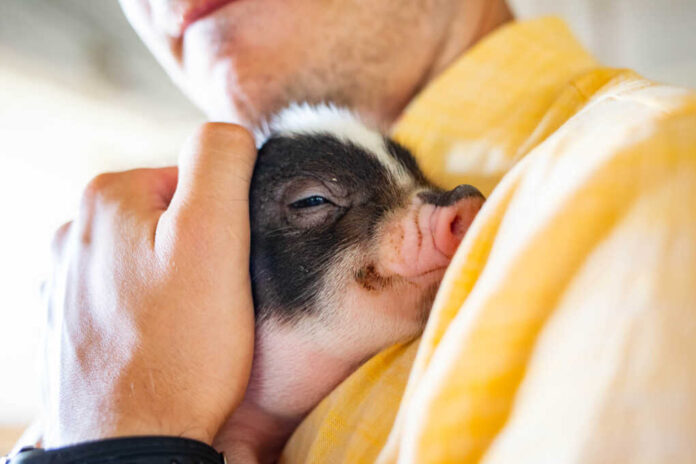
Pig organ transplants may pose a profound cultural and religious dilemma for Jews and Muslims, challenging age-old dietary taboos.
Story Snapshot
- The pork taboo in Judaism and Islam is deeply rooted and complex.
- Exceptions to the taboo exist, primarily for survival and necessity.
- Organ transplants from pigs raise ethical concerns among Jews and Muslims.
- Scholars debate the origins and persistence of the pork prohibition.
Historical Origins and Religious Codification
Pork prohibition in Judaism and Islam is one of the oldest dietary restrictions, dating back to ancient times. In the Bronze Age, pigs were commonly consumed, but their decline began during the Iron Age, coinciding with the rise of Israelite identity. The prohibition was codified in the Hebrew Bible, deeming pigs unclean due to their split hooves and failure to chew cud. This taboo was later reinforced in Islam through the Qur’an, making it central to Islamic dietary law.
The prohibition against pork is not absolute. Jewish and Islamic laws recognize exceptions, primarily for survival. In Judaism, the principle of *pikuach nefesh* allows for breaking dietary laws to save a life. Similarly, in Islam, necessity can justify the consumption of prohibited items. These exceptions highlight the complexity and adaptability of religious dietary laws, accommodating modern challenges like medical advancements.
The taboo against pork is deeply entrenched in both religious traditions. But the prohibition is not absolute.https://t.co/TWkZKiQrwr pic.twitter.com/P5w1Ig1ZU7
— Amy Sheinberg, Ph.D. (@dramysheinberg) September 16, 2025
Sociopolitical Significance and Current Challenges
The pork taboo has historically served as a marker of resistance and identity, particularly under foreign domination. Hellenistic and Roman rulers often used pork consumption as a tool of assimilation or oppression against Jewish communities. In modern times, the taboo continues to influence religious identity and social boundaries, especially in multicultural societies.
Recent advancements in organ transplantation, particularly the use of pig organs, pose a new ethical dilemma for Jews and Muslims. While such transplants could save lives, they challenge the deep-seated prohibition against pork. Religious authorities and scholars are actively debating the implications, balancing religious observance with medical necessity.
The taboo against pork is deeply entrenched in both religious traditions. But the prohibition is not absolute.https://t.co/TWkZKiQrwr pic.twitter.com/P5w1Ig1ZU7
— Amy Sheinberg, Ph.D. (@dramysheinberg) September 16, 2025
Archaeological and genetic studies continue to refine our understanding of ancient pig-rearing and pork consumption patterns. Scholars like Max Price and Jordan Rosenblum emphasize the taboo’s role in identity formation rather than purely practical or health-based origins. They argue that the prohibition’s persistence is tied to its function as a cultural and religious boundary, rather than environmental or health concerns alone.
Implications and Future Considerations
For Jewish and Muslim communities, the pork taboo remains a crucial aspect of religious law and identity. The ongoing debate over pig organ transplants exemplifies the tension between adherence to traditional beliefs and the benefits of modern medical practices. As research progresses, religious authorities may need to revisit the interpretation and application of dietary laws to address contemporary issues.
The implications of this debate extend beyond religious communities, affecting the global meat industry, food certification practices, and interfaith relations. As the world becomes increasingly interconnected, understanding and respecting cultural and religious dietary restrictions will be essential to fostering harmony and cooperation among diverse populations.
Sources:
Archaeology Magazine (2025): In-depth analysis of archaeological and textual evidence
Wikipedia (2025): Comprehensive overview with citations to primary and secondary sources
South Seattle Emerald (2025): Academic synthesis of historical developments
The Jewish Theological Seminary: The story of pig as taboo


















